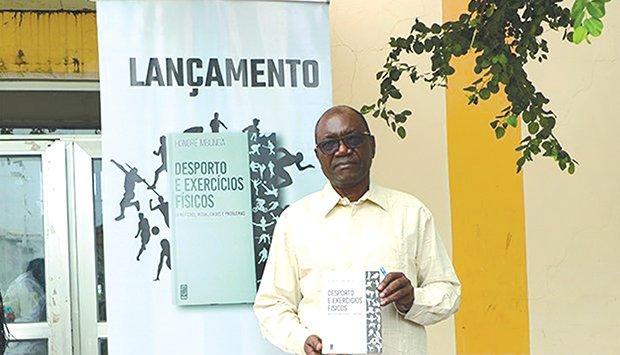Africa-Press – Angola. The importance of document management, conservation and preservation of archives of former colonies are elements that historian Honoré Mbunga intends to reflect on, in his book “Os Arquivos das Ex-colónias Portuguesas em África”, whose launch takes place today, at 4pm, at the National Archives, and will be presented by historian Rosa Cruz e Silva.
In an interview, the author said that with the launch of the book he intends to show solutions to eradicate the problems that archives face on a daily basis and also draw the attention of specialists so that they can ensure the conservation of these archives.
With more than twenty years in the sector, Honoré Mbunga consulted various materials that address the topic to write his work.
During a trip to South Africa, in 2008, at the International Conference on Archives, the historian had access to several reports from different countries, having found that most of the archives in Africa were degraded, which motivated him to take an approach to the issue, such as the lack of adequate structure, financial resources and a greater number of employees who are not always able to provide a solution to this issue”, he said.
Regarding the assessment of the state of conservation and use of the archives that store the affairs of the colonies, in the case of Angola, the historian explained that the first stage has already been done, with the construction of the National Archives of Angola building.
“We have all the conservation conditions required by the International Archive Council, what remains is to recover all the documents that were in a state of degradation due to our tropical climate”, he said.
Honoré Mbunga reinforced that all that remains is the digitization phase of the files, which will allow communication with other countries and, subsequently, with other researchers.
With the seal of the publisher Mayamba, the book designed a year ago, contains 311 pages and is divided into 15 chapters.
For example, in the first chapter, the author discusses the “History of Archives and Archivistics”, in the second the “Archive System, Documentary Production”, in the third the “Management of Documents and Archives”, in the fourth the “Discretion and Cataloging Archive Documents” and in the fifth the “Content Analysis and Information Retrieval”.
The author of “How to elaborate a project”, “Angola and the post-independence crisis: Cabinda (1975-2006) and “Contribution to the history of Damba”, states that during the research carried out for the last work, he found that the The problems that the National Archives have experienced are always the same, but to different degrees.
“There are documents from the colonial period that have not been processed. The first treatments were carried out to put them in boxes and make them available to the research public, which by the way is insufficient, but so far without any follow-up”, he said.
Honoré Mbunga said that he intends to launch the book “Angola and São Tomé” next year.
Honoré Mbunga was born in Luzuanda, a village in the municipality of Damba, in the province of Uíge. He has a degree in Teaching History in African Civilizations from the National University of Côte d’Ivoire, in Abidjan, since 1990.
He was a professor of Geography and History, at the II and III levels of education, at IMNE, in the provinces of Uíge and Zaire, respectively.
Since January 2002, he has been an employee of the National Archives of Angola, in the Research and Assistance Department, of which he has been head since 2015.
Its literary collection includes the works “How to Elaborate a Project”, published by Mayamba publisher, “Angola and the Post-independence Crisis: Cabinda (1975-2006)”, publisher Chá de Caxinde, and “Contribution to the History of Damba” , edited by Mayamba.
For More News And Analysis About Angola Follow Africa-Press






